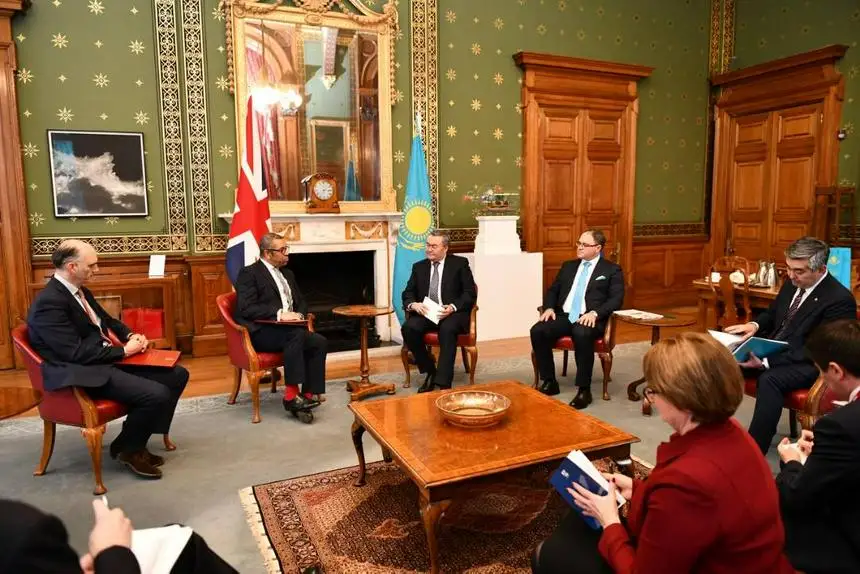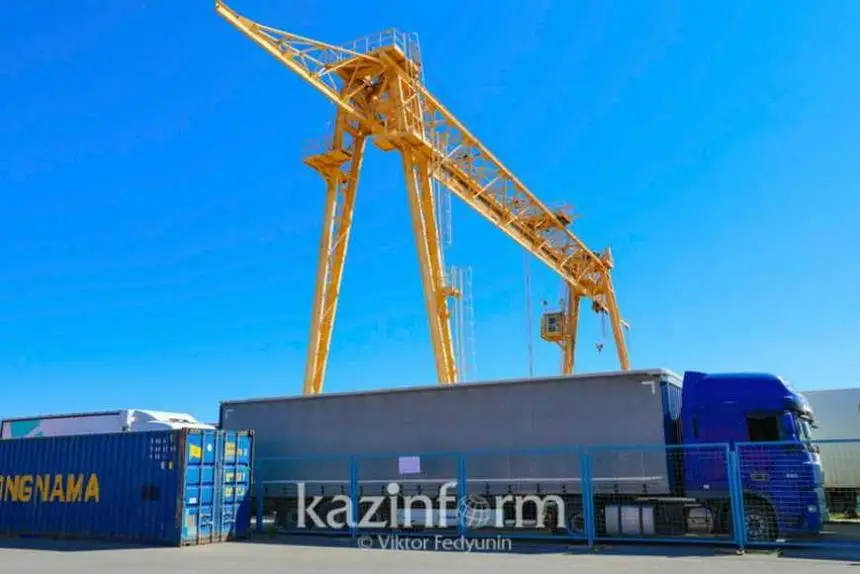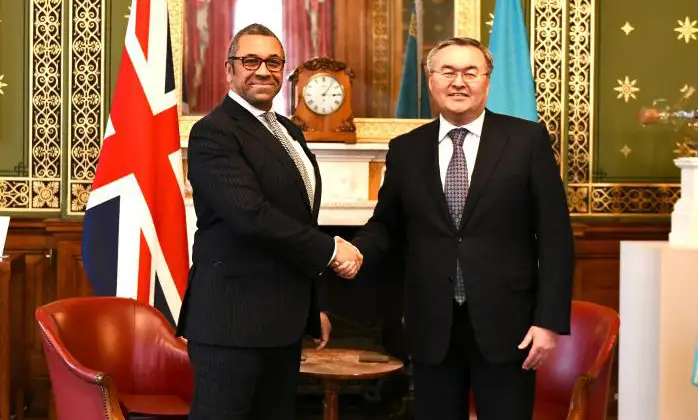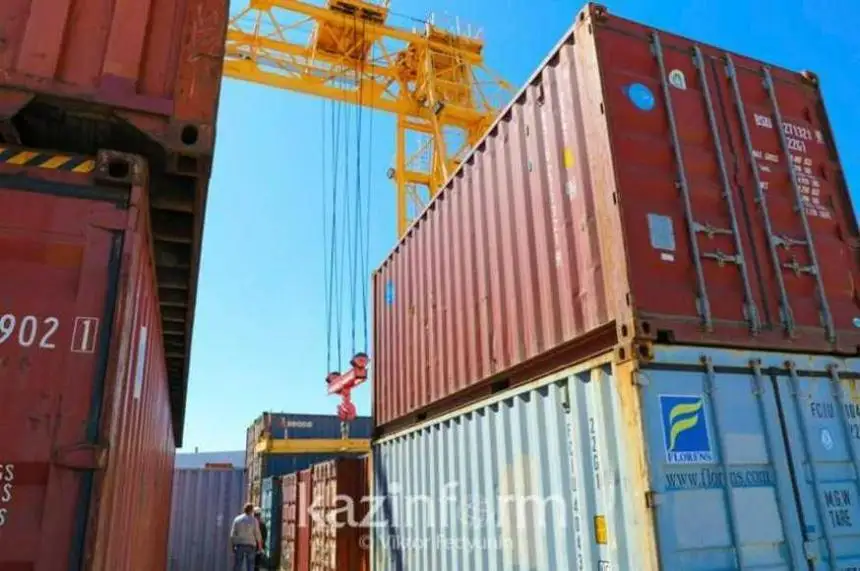UK Foreign Minister's visit to Kazakhstan: New opportunities for both countries

High level of trust and close political dialogue
This is the first visit of James Cleverly to Kazakhstan and Central Asia. By the way, British foreign ministers have not visited our country for almost two decades. The last time Jack Straw visited Astana was in 2004.
 Photo: wikipedia.org
Photo: wikipedia.org
James Cleverly will be received by President Kassym-Jomart Tokayev and Prime Minister Alikhan Smailov. He will also meet with the leadership of the Kazakh Ministry of Foreign Affairs. A square named in honor of late British Queen Elizabeth II is set to be unveiled in one of Astana's parks during his visit.
In December 2022, Minister of Foreign Affairs of Kazakhstan Mukhtar Tileuberdi had negotiations with James Cleverly in London, which were held in a warm and trustful atmosphere.
«Kazakhstan is a reliable, leading partner of our country in Central Asia. We are ready to use all available opportunities to diversify British-Kazakh cooperation,» said James Cleverly.
In turn, Minister Tileuberdi underlined the high level of mutual trust and close political dialogue between Astana and London that contributes to the steady deepening of multifaceted partnership in various spheres
 Photo:gov.kz
Photo:gov.kz
Following the meeting, a Joint Statement was adopted by the Foreign Ministers of Kazakhstan and the United Kingdom, reflecting the shared intention to develop bilateral strategic partnership in the political, trade, economic, investment, cultural, and humanitarian spheres, as well as in the field of energy security and combating climate change.
«With the consideration of wide international ties and two countries’ obligations, we are pleased to see another certain step towards strengthening the Kazakh-British relations, which is reflected in the Joint Statement,» Director of the British-Kazakh Society David Skeels told Kazinform correspondent.

Support of President Tokayev’s reforms
Great Britain clearly signaled its support for the ongoing political and socio-economic reforms in our country in order to build a Just and Fair Kazakhstan.
«The British Foreign Minister expressed support for the political and socio-economic reforms carried out in Kazakhstan, aimed at building a fair state, a fair economy and a fair society,» the Joint Statement of Tileuberdi and Cleverly reads.

In a talk with Kazinform correspondent, Research Fellow of the Henry Jackson Society Stepan Stepanenko said that the democratic reforms initiated by President Kassym-Jomart Tokayev are a long-awaited event for the entire Central Asian region and are highly praised in London.
«UK official statements welcome the announced democratic transformation in Kazakhstan and the reforms already implemented. They recognize the results of the recent presidential election, and keep mentioning the promotion of human rights issues in Kazakhstan as a point for further engagement,» Stepan Stepanenko says.
Trade, investments and humanitarian cooperation – basis of partnership
Great Britain is among the top 10 major trade partners of Kazakhstan in the volume of commodity turnover. The UK is also among the six largest investors of our country.
«The total volume of trade in goods and services between the UK and Kazakhstan from July 2021 to June 2022 amounted to 2.3 billion pounds [Ed. note: about 2.6 billion US dollars], which is 63.3% more than from July 2020 to June 2021,» the British Ministry of International Trade says.

More than 600 companies with British capital have been registered in Kazakhstan. They work almost in all sectors of the economy. Royal Dutch Shell and Ernst&Young are the members of the Council of Foreign Investors chaired by the President of Kazakhstan.
Undoubtedly, the Agreement on Strategic Partnership and Cooperation between Kazakhstan and Great Britain, to be signed in the nearest future, will give additional impetus to the development of the bilateral trade and investment flow.
As Mukhtar Tшleuberdi said to Kazinform correspondent after the meeting with James Cleverly in London, humanitarian cooperation is one of the priorities of the document.
«In the cultural and humanitarian context, we are interested in implementing the task set by our President - to strengthen education in technical majors. During our meetings in London, we discussed the possibility of opening branches of British technical universities in Kazakhstan, as well as increasing the number of Kazakh students studying in the UK,» the minister said.
The Kazakh side is actively attracting British universities to the creation of an academic hub in Kazakhstan. The hub is called to attract young people from neighboring regions with a population of about 2 billion people.
Critically important minerals and other areas of mutual interest
Aside from deliveries of traditional commodities, cooperation in joint extraction and processing of critically important minerals looks quite promising. Especially the minerals the British industry lacks at the moment.
Those critically important minerals, including metals and rare elements, are used in the sophisticated technologies and are detrimental for national security and economic prosperity.
Associate Fellow at Chatham House Annette Bohr believes that recent geopolitical changes have brought some non-traditional sectors to the forefront. The U.S. and the UK has never considered Central Asia as a reserve of critical materials, however, this approach has changed.
According to her, at this point Kazakhstan can supply the European Union with 16 critically important minerals and 30 of them in the future. The EU and Kazakhstan entered into strategic partnership on sustainable raw materials, batteries and renewable hydrogen value chains.
99 elements in the periodic table of Mendeleev are found in Kazakhstan with 70 being explored and 60 elements already being extracted. Our country can contribute to the sustainability of supply chains of the critically important minerals to Europe.
Aside from the critically important minerals, the two countries can cooperate in such areas as joint development of innovative agriculture, ‘green’ hydrogen production, expansion of Kazakhstan’s export potential, cooperation in multilateral platforms and many other sectors.
In conclusion, it is worth mentioning that James Cleverly’s visit to Kazakhstan will without doubt give an additional momentum to deepening cooperation between Astana and London based on trade and economic, investment, cultural and humanitarian interaction for the benefit of Kazakhstan and Great Britain.